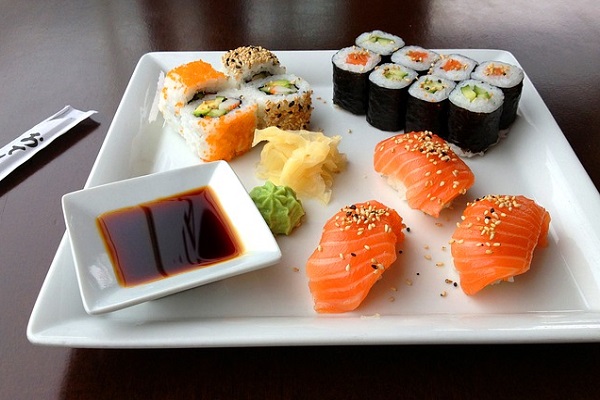
The rules have changed – sushi is now Kosher for Passover.
Passover or Pesach, a Biblically-derived Jewish festival, begins this Friday. It is an important festival for the Jews. The Jewish people celebrate the festival as a commemoration of their liberation, by God, from slavery in Egypt.
Passover starts with a holiday meal, which is known as a seder. This year's seder will be different for the Conservative Jews. This year's Passover seder menu might include sushi, hummus, beans and rice, peanut sauce, chicken satay, and so on. All of these food items were forbidden in the seder menu, until now.
Sushi Now Approved for Passover Consumption[/tweetthis]
Last year, in November, Judaism's Conservative movement lifted the ban on kitniyot during Passover, for the Ashkenazi Jews outside Israel. Kitniyot refers to a group of food that includes corn, rice, beans, peanuts, and other legumes. The ban has been in place since the 13th century. According to Rabbi Elliot Dorff, chair of the Conservative movement's Committee on Jewish Law and Standards, the move to lift the ban comes in the wake of the growing popularity of vegan and gluten-free diets among the Conservative Jews. It is also a way of recognizing the modern Jew's changing composition and traditions, in the US. Outside Israel, United States has the world's largest Jewish community.
Judaism has three major branches, Conservative, Orthodox, and Reform. Conservative Jews observe Jewish laws, but not as strictly as Orthodox Jews. Reform Jews observe the laws of Judaism very loosely. The ban lift means little for Orthodox Jews and Reform Jews.
The Food Rules Have Changed for #Passover: #Kosher https://t.co/8S705B70Ke
— Michele Jacobson (@HealthyAuthor) April 20, 2016
Kitniyot is now kosher for Conservative Jews during Passover, however, hametz is still not. Hametz include grains like oats, barley, spelt, and wheat. The only possible way to consume these are when they are in the form of matzo (a cracker-like food), and only if they could be prepared in under 18 minutes.
According to Rabbi Amy Levin, it will still be difficult for a lot of people to change tradition. She herself, would not be preparing lentil soup in the pot that he inherited from her grandmother, who never wanted to put lentils in the pot. What she would do is prepare the lentil soup in the pot that she bought himself. Rabbi Levin's research supported the decision to lift the ban on kitniyot during Passover.
Ashkenazi Jews are more in number in the United States than the Sephardic Jews. Ashkenazi Jews are typically from Eastern Europe. Sephardic Jews are typically from North Africa, Middle East, Portugal, and Spain. Kitniyot during Passover has always been kosher for Sephardic Jews.
Passover ends on April 30.
